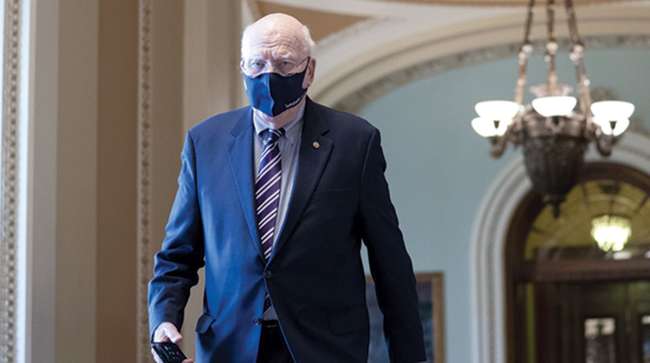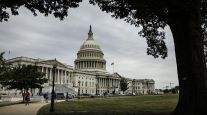Senior Reporter
Congress Passes Short-Term Funding Bill to Avert Shutdown

[Stay on top of transportation news: Get TTNews in your inbox.]
WASHINGTON — Facing a Dec. 3 funding deadline, Congress averted a partial U.S. government shutdown and passed a stopgap spending measure Dec. 2, and President Joe Biden signed it into law Dec. 3.
The Senate approved the measure 69-28 in the evening after the House voted in favor 221-212 late in the afternoon.
“I’m happy to let the American people know the government remains open,” Majority Leader Chuck Schumer said after the vote.
Funding negotiators suggested the stopgap legislation would afford them additional weeks to reconcile partisan differences on national security matters.
Leahy Statement On The Continuing Resolution https://t.co/5uOg3pUGXg pic.twitter.com/OPYD2I2u7a — Sen. Patrick Leahy (@SenatorLeahy) December 2, 2021
“Since May, I have called for bipartisan, bicameral negotiations with the White House to establish top lines. On Oct. 18, Senate Democrats released a comprehensive opening offer in an effort to jump-start these negotiations and let our Republican colleagues and the American people know our values,” said Senate Appropriations Committee Chairman Patrick Leahy (D-Vt.). “Since then, we have been met with nothing but deafening silence. Further refusal to meet at the negotiating table will only undermine national security, our ability to invest in American families, and our capability to respond to the coronavirus and its emerging variants.
“This agreement gives us time to resolve our differences and do our work on behalf of the American people.”

DeLauro
House Appropriations Committee Chairwoman Rosa DeLauro (D-Conn.) said, “For months, Republicans have refused to negotiate on government funding and, in fact, have not even presented an offer of their own. Because Democrats take responsibility for the needs of American families, I have introduced the Further Extending Government Funding Act. It continues current funding and policy with only minimal changes, creating incentives for both sides to negotiate.
“While I wish the Feb. 18 end date were earlier, this agreement allows the appropriations process to move forward toward a final funding agreement which addresses the needs of the American people.”
This fall, Senate Democrats unveiled fiscal 2022 legislation for transportation programs that would specifically provide the Federal Motor Carrier Safety Administration with $288 million for safety operations and programs. For FMCSA’s safety grants, senators proposed $393.8 million. Overall, the Senate bill would provide $29.1 billion in discretionary budget authority for U.S. DOT, a $3.8 billion increase over the enacted fiscal 2021 level, according to a Senate committee summary of the bill.
The House has passed a transportation funding measure for fiscal 2022.
Separately, the U.S. Senate is debating the House-passed Build Back Better Act. The $1.75 trillion social infrastructure budget package, a pillar of Biden’s domestic agenda, aims to enhance climate change programs, amplify the social safety net, and increase coverage for children and the elderly, among other provisions. Nearly every Senate Democrat backs the bill. By relying on a fast-track budget process, the bill would necessitate a simple majority for passage.
I think the best Christmas present for the American people would be to block these increased taxes.
Sen. John Barrasso (R-Wyo.)
Senate Republicans have indicated their opposition to the social infrastructure bill.
“We have an entire Republican conference who wants to do everything we can to defeat it,” said Sen. John Barrasso (R-Wyo.) “I think the best Christmas present for the American people would be to block these increased taxes and block this bill that causes more inflation.”
Sen. John Thune (R-S.D.) noted, “The big agenda item for Democrats for the rest of the year continues to be passing their partisan Build Back Better tax-and-spending spree, which means Americans will be able to look forward to further inflation and a weaker economy, not to mention increased government control of their decision-making.”
Want more news? Listen to today's daily briefing below or go here for more info:


